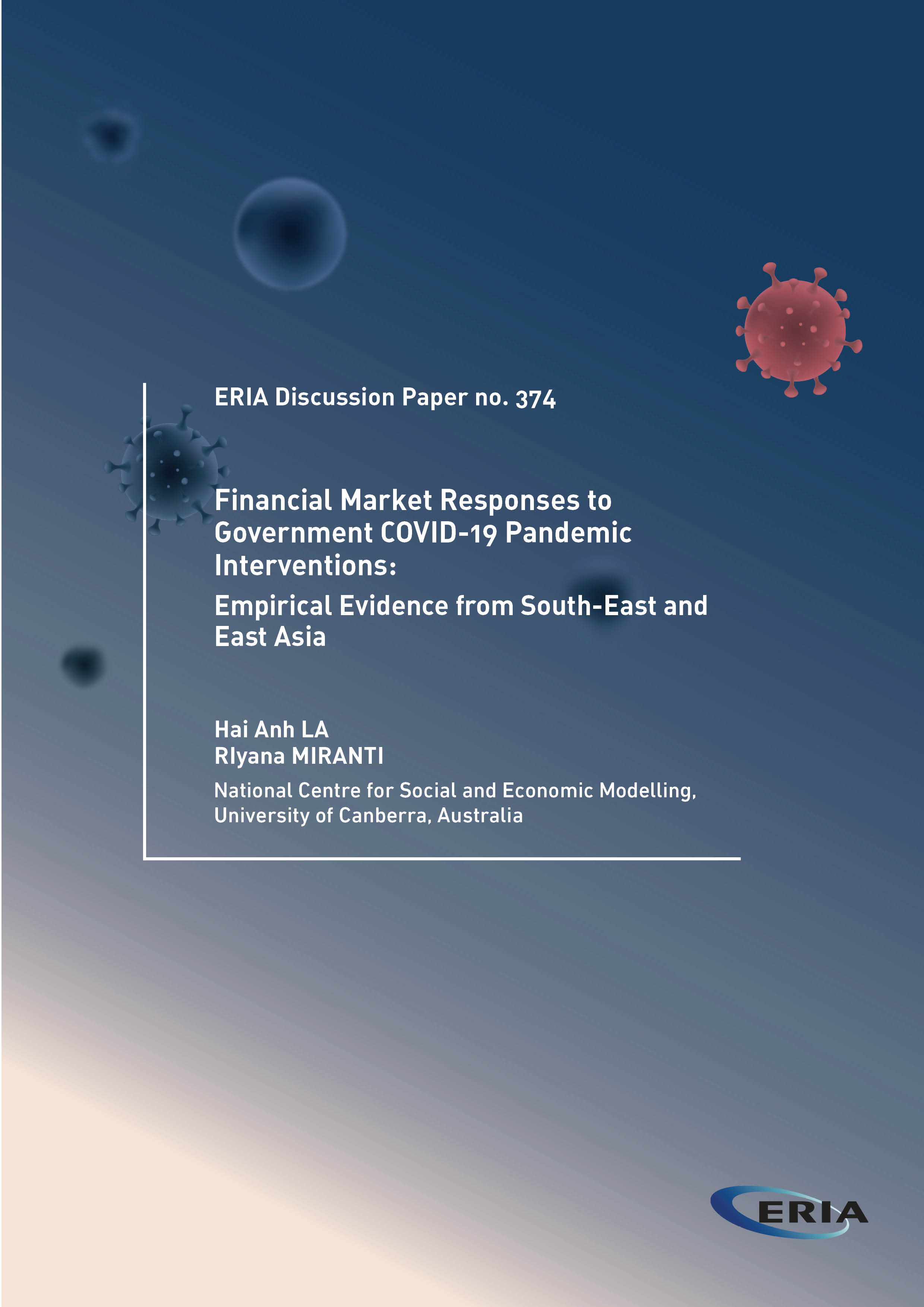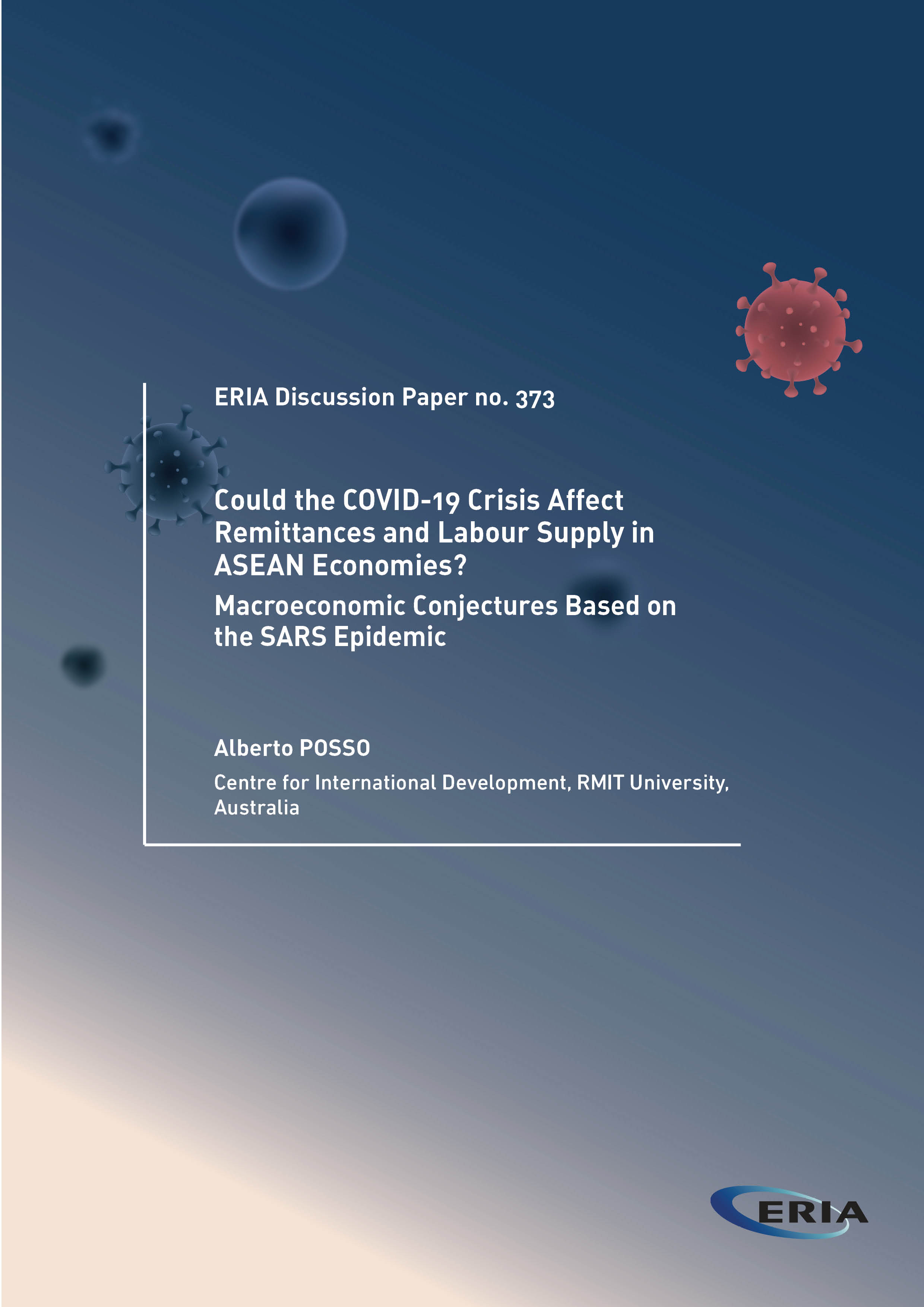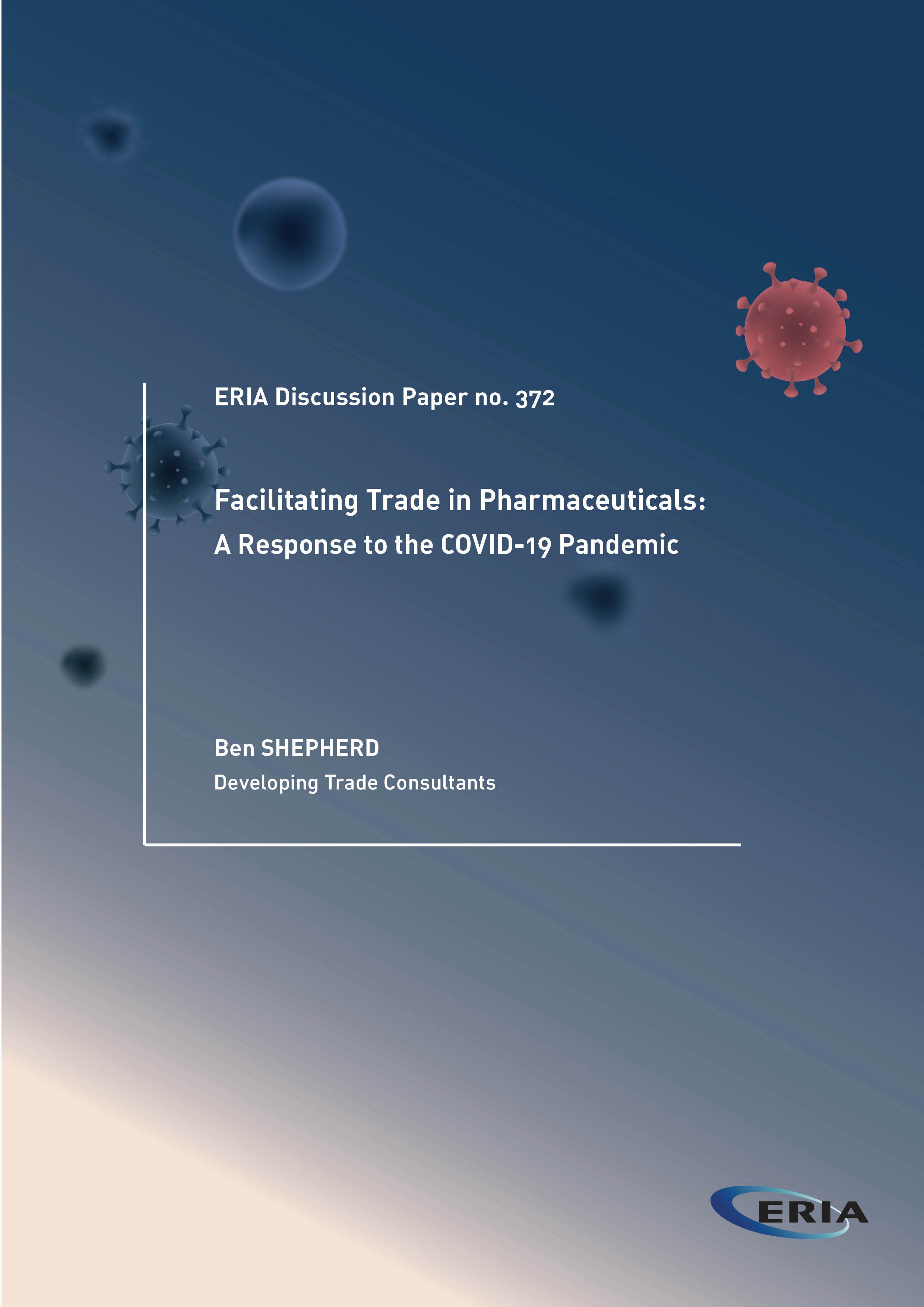Financial Market Responses to Government COVID-19 Pandemic Interventions: Empirical Evidence from South-East and East Asia

Date:
29 April 2021Category:
COVID-19, ASEAN, Finance and MacroeconomyType:
Discussion PapersTags:
ASEAN, COVID-19, East Asia, Government Intervention, Macroeconomy, Stock MarketPrint Article:
This study investigates the impact of various government interventions on the spread of COVID-19 as well as stock markets in South-East and East Asia. It finds that stricter interventions – including gathering restrictions, public event cancellations, and mask requirements – helped mitigate the severity of the pandemic significantly in the region. Total border closures had a moderate effect on flattening COVID-19 spread, especially during the onset of the pandemic. Other policies, such as school closures or stay-at-home orders, worked effectively later in the pandemic. The study also shows evidence of herding behaviours in regional stock markets during the pandemic. School closures, gathering restrictions, stay-at-home orders, domestic travelling bans, robust testing policies, and government income support programmes tended to reduce herding behaviour. More stock market integration is found during the onset of the pandemic, compared to the periods before and later in the pandemic, implying the short-term impact of a sudden shock from COVID-19.
This research was conducted as a part of the project ‘ERIA Research on Covid-19’ at the Economic Research Institute for ASEAN and East Asia (ERIA).




